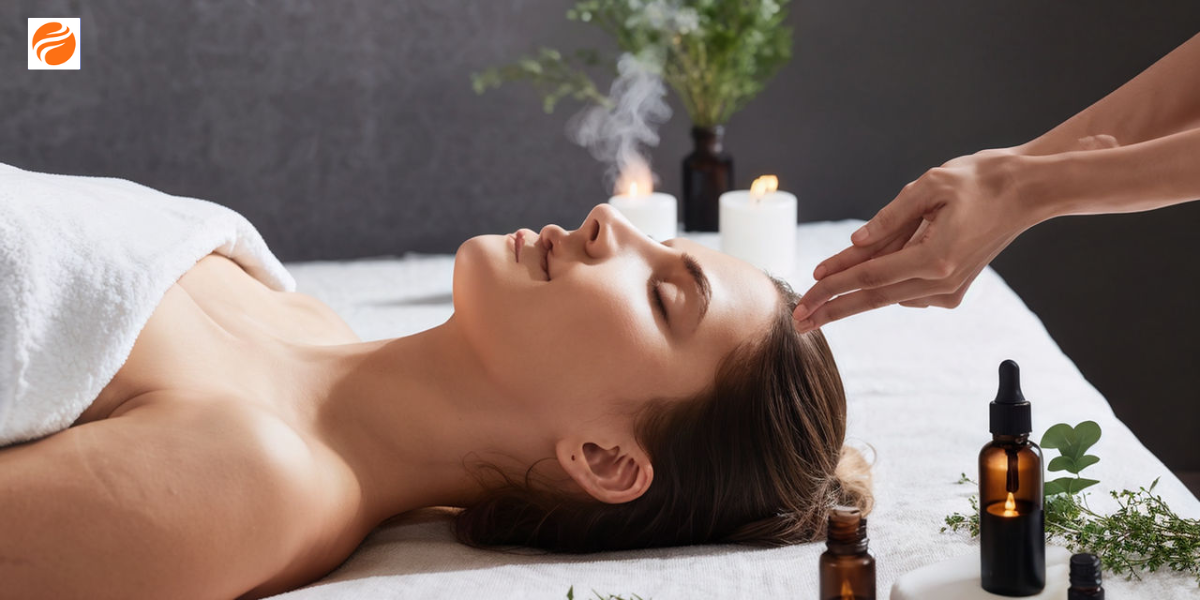
Aromatherapy is an ancient practice that has gained popularity in recent years for its ability to promote health and well-being using natural plant extracts, also known as essential oils. By inhaling or applying these concentrated oils, individuals can experience a variety of physical, emotional, and mental benefits. From reducing stress to improving sleep and even easing chronic pain, aromatherapy is becoming an essential tool in holistic health care. Let’s explore how aromatherapy works, the benefits it offers, and the best essential oils for specific health concerns.
Table of Contents
What is Aromatherapy?
Aromatherapy is a holistic healing treatment that uses natural plant extracts, commonly known as essential oils, to promote health and well-being. These oils are extracted from various parts of plants, such as flowers, leaves, bark, or roots, and each oil has unique properties. Aromatherapy can be used in several ways, including inhalation (through diffusers or steam) or topical application (when mixed with a carrier oil).
Aromatherapy taps into the powerful connection between smell and emotion. The olfactory system (our sense of smell) is closely linked to the brain’s limbic system, which governs emotions, memory, and even some physiological functions like heart rate and blood pressure. Therefore, specific scents can trigger emotional and physical responses that help reduce stress, promote relaxation, and improve overall well-being.
The Benefits of Aromatherapy
Aromatherapy offers a wide array of health benefits, both mental and physical. Some of the key advantages include:
- Stress and Anxiety Reduction: Certain essential oils, such as lavender and bergamot, are known for their calming and relaxing effects. Inhaling these oils can help lower levels of the stress hormone cortisol, leading to a more relaxed state.
- Improved Sleep: Aromatherapy, particularly with oils like lavender and chamomile, can help promote restful sleep by calming the mind and reducing insomnia.
- Pain Relief: Some essential oils, such as eucalyptus, rosemary, and peppermint, can be applied topically to relieve pain from headaches, sore muscles, or arthritis by reducing inflammation and improving circulation.
- Mood Enhancement: Oils like citrus (lemon, orange) and peppermint have been found to uplift mood, energize the body, and improve focus. This makes them ideal for combating symptoms of depression and fatigue.
- Immune System Support: Certain oils like tea tree, eucalyptus, and oregano have antibacterial, antiviral, and antifungal properties, making them effective in supporting the immune system and helping fight off infections.
Popular Essential Oils and Their Uses
There are countless essential oils available, each with its own set of benefits. Here are some of the most commonly used oils and their specific applications in aromatherapy:
1. Lavender (Lavandula angustifolia)
Lavender is one of the most popular and versatile essential oils in aromatherapy. Known for its calming and soothing properties, it is often used to relieve stress, reduce anxiety, and promote better sleep.
Uses:
- Add a few drops of lavender oil to a diffuser to create a calm atmosphere.
- Mix with a carrier oil (such as coconut or almond oil) and apply to the skin for a relaxing massage.
- Place a drop or two on your pillow to improve sleep quality.
2. Peppermint (Mentha piperita)
Peppermint oil is often used for its refreshing and invigorating effects. It can help alleviate headaches, improve focus, and ease digestive issues when used correctly.
Uses:
- Inhale peppermint oil directly or use in a diffuser to improve mental clarity and focus.
- Apply topically to the temples to relieve tension headaches.
- Massage into the abdomen (diluted with a carrier oil) to ease indigestion or bloating.
3. Eucalyptus (Eucalyptus globulus)
Eucalyptus oil is known for its ability to clear the respiratory system, making it ideal for those suffering from colds, allergies, or sinus congestion.
Uses:
- Add a few drops of eucalyptus oil to a bowl of hot water and inhale the steam to relieve sinus congestion.
- Diffuse the oil during cold and flu season to purify the air and reduce symptoms.
- Dilute with a carrier oil and apply to the chest to soothe respiratory discomfort.
4. Tea Tree (Melaleuca alternifolia)
Tea tree oil has strong antimicrobial properties and is often used to treat skin conditions such as acne, fungal infections, and minor wounds. It is also a powerful immune booster.
Uses:
- Apply diluted tea tree oil to acne spots or skin irritations to reduce inflammation and fight bacteria.
- Add a few drops to your shampoo to combat dandruff or scalp irritation.
- Diffuse tea tree oil to purify the air and support the immune system.
5. Lemon (Citrus limon)
Lemon oil is known for its uplifting and energizing properties. It’s often used to boost mood, improve focus, and even support the immune system due to its high vitamin C content.
Uses:
- Inhale lemon oil or use in a diffuser to uplift your mood and increase mental alertness.
- Mix with a carrier oil and apply topically to the skin for a natural energy boost.
- Use as a natural cleaner by adding a few drops to water to sanitize surfaces and freshen the air.
also read : 10 Best Natural Remedies for Anxiety: Herbal and Lifestyle Solutions for Stress Relief
How Aromatherapy Works: The Science Behind It
The effectiveness of aromatherapy is rooted in the connection between scent and the brain. When you inhale essential oils, the molecules travel up the nasal passage to the olfactory receptors, which send signals to the limbic system of the brain. The limbic system is responsible for regulating emotions, behavior, and long-term memory, which is why certain smells can trigger specific memories or emotions.
In addition to the emotional response, essential oils can also have a direct effect on the body. For example, lavender can lower heart rate and blood pressure, promoting relaxation, while peppermint can stimulate the senses and increase focus.
When applied topically, essential oils penetrate the skin, entering the bloodstream and providing localized relief for conditions like muscle pain or skin irritations. This dual mechanism—both physiological and emotional—explains why aromatherapy can be so effective in promoting overall health and wellness.
How to Use Aromatherapy
There are several ways to incorporate aromatherapy into your daily routine to maximize its health benefits. Here are some popular methods:
- Diffusion: Using an essential oil diffuser is one of the most common methods for inhaling the benefits of essential oils. This allows the oils to disperse into the air, filling the room with therapeutic scents.
- Inhalation: You can inhale essential oils directly by placing a few drops on a tissue or cotton ball and breathing in the scent.
- Topical Application: Many essential oils can be applied directly to the skin when mixed with a carrier oil. This method is especially useful for muscle pain, headaches, or skin issues.
- Baths: Adding a few drops of essential oil to your bath can provide both relaxation and therapeutic benefits, especially for stress and muscle tension.
- Massage: Essential oils are often used in massage therapy. When diluted with a carrier oil, they can be massaged into the skin to provide targeted relief for physical discomfort.
Are There Risks Associated with Aromatherapy?
While aromatherapy is generally considered safe, it’s important to use essential oils correctly. Some oils can cause skin irritation or allergic reactions if not diluted properly. It’s also important to avoid ingesting essential oils unless under the guidance of a qualified healthcare professional, as some oils can be toxic when consumed.
Additionally, certain essential oils should be avoided during pregnancy or by people with specific health conditions. Always consult with a healthcare provider if you’re unsure about the safety of using essential oils in your personal health routine.
Conclusion: Aromatherapy as a Holistic Health Practice
Aromatherapy offers a wide range of physical and emotional health benefits, making it a valuable addition to any wellness routine. Whether you’re looking to reduce stress, improve your mood, enhance focus, or support your immune system, essential oils can provide a natural, holistic approach to health. As with any health practice, it’s essential to use essential oils safely and responsibly, ensuring they are high quality and used in the correct concentrations.
Incorporating aromatherapy into your daily life can lead to improvements in both mental and physical well-being. By understanding the properties of different essential oils and how they work, you can harness the power of nature to promote a healthier, more balanced lifestyle.
for more info: click here
FAQs
1. What are the best essential oils for stress relief?
Lavender, bergamot, and chamomile are among the best essential oils for reducing stress and promoting relaxation.
2. Can I apply essential oils directly to my skin?
Essential oils should be diluted with a carrier oil (like coconut or almond oil) before applying to the skin to avoid irritation.
3. How do I know which essential oils are best for me?
The best essential oil for you will depend on your specific needs, such as relaxation, energy, or pain relief. It’s always a good idea to consult with a trained aromatherapist for personalized advice.
 Health live a Healthy life
Health live a Healthy life




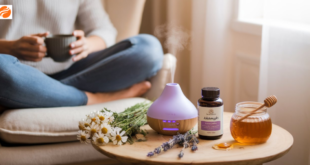
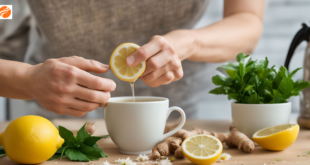
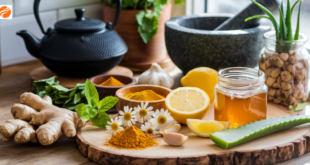
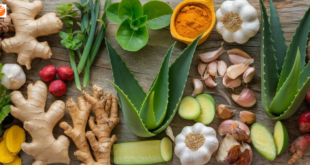
2 comments
Pingback: 10 Essential Cosmetic Tips for a Flawless and Natural Look in 2024
Pingback: How to Apply Makeup: Best Tips for a Flawless Look in 2024